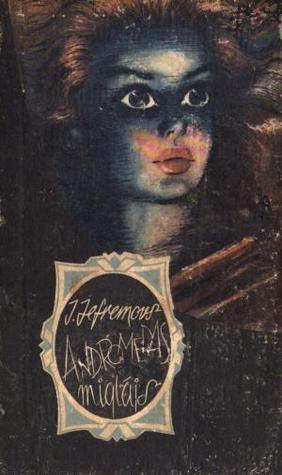What do you think?
Rate this book


336 pages, Hardcover
First published January 1, 1957
Lõhenemise ajal teravnes võitlus vanade ja uute ideede vahel ning viis selleni, et kogu maailm jagunes kahte erineva majandussüsteemiga leeri - vanadeks, kapitalistlikeks, ja uuteks, sotsialistlikeks riikideks...
Inimese võim looduse üle hakkas hiiglaslike sammudega kasvama...
Ainuüksi minevikusajandite uskumatu toiduraiskamise kaotamine tagas toidu miljarditele inimestele. Kõik ühiskonna jõud, mis muistsel ajal olid kulunud sõjamasinate loomisele, kasulikust tööst eemal seisvate tohutute armeede ülalpidamisele, poliitilisele propagandale ja võltshiilgusele, suunati nüüd elu korraldamisele ja teaduse arendamisele.
... piki kolmekümnendaid laiuskraade tähistavad soojade merede kallastele, pehme, ilma talveta kliima vöötmesse koondatud linnade pidevat ahelat. Inimkond ei tarvitse enam raisata kolossaalset energiat elamute soojendamiseks talveperioodidel ja kohmakate riiete valmistamiseks...
Nüüd keerleb ümber kogu planeedi Spiraaltee, mis hiigelsildadega üle väinade ühendab kõiki mandreid.
Näis uskumatu, et säärased olendid võisid seista ühes reas inimese esivanematega - inimese, kelle ilus keha võimaldab nii hämmastavat liikuvust ja liigutuste täpsust.
Roheliste kontsentriliste ringidena asetsesid stepis lüpsilabürindid, millest piimakarjad kaks korda päevas läbi aeti. Piim, mis ei läinud hapuks nagu Aafrika antiloopidelgi, voolas kokku ja külmus sealsamas maaalustes jahutites ning piim säilis väga kaua.
Maa teadlaste liigituse järgi kuulusid need tähed klassi E, mis oli oma nimetuse saanud muinasaja suurima füüsiku Einsteini auks, kes aimas selliste tähtede olemasolu, kuigi hiljem vaieldi sellele kaua vastu ja määrati isegi kindlaks tähtede massi piir, mis on tuntud Tšandrasekari piiri nime all. Kuid see muistne astrofüüsik lähtus oma arvutustes üksnes elementaarsest gravitatsioonimehaanikast ja üldisest termodünaamikast, võtmata arvesse hiid- ja ülihiidtähtede keerukat elektromagnetilist struktuuri... Niisuguse tähe hiiglaslik külgetõmbejõud peatas kiirguse, laskmata valgusel tähest lahkuda ja maailmaruumi tungida...
Üks inimkonna ülevamaid saavutusi on võit pimeda emainstinkti üle, arusaamine, et ainult laste kollektiivne kasvatamine spetsiaalselt õpetatud ja valitud inimeste poolt suudab meie ühiskonna inimest luua. ... Ja sellepärast ongi kadunud instinktiivne ahviarmastus, mis tekkis loomalikust hirmust oma lapsukese pärast.
Hea veel, et Dar Veter oli imuunne väljaspool atmosfääri töötajate hulgas levinud psühhooside - ultravioletse unehaiguse ja infrapunase marutõve suhtes.
"Океан — прозрачный, сияющий, не загрязняемый более отбросами, очищенный от хищных акул, ядовитых рыб, моллюсков и опасных медуз, как очищена жизнь современного человека от злобы и страха прежних веков. Но где-то в необъятных просторах океана есть тайные уголки, в которых прорастают семена вредной жизни, и только бдительности истребительных отрядов мы обязаны безопасностью и чистотой океанских вод."— Really? Right in front of my Earth Day? А это точно не антиутопия? Потому что когда Ефремов заводит разговор об экологии, то превращается в законченного фашика.
"Слабый звук и тяжёлый удар — это упала крышка водяного бака внутри руфолюцитовой камеры. Знакомое мерцание коричневых вспышек — это щупальца чёрного чудовища появились над краем бака. Внезапным прыжком оно взлетело вверх, простираясь покрывалом тьмы на всю площадь руфолюцитовой камеры, и ударилось о прозрачный потолок. Тысячи коричневых звёздочек заструились по телу медузы, покрывало выпучилось куполом, как от дуновения снизу, и медуза упёрлась в дно камеры собранными пучком щупальцами. Таким же чёрным призраком поднялось из бака второе чудовище, невольно внушая страх своими быстрыми и беззвучными движениями. Но здесь, за прочными стенами опытной камеры, окружённые управляемыми на расстоянии приборами, порождения планеты мрака были бессильны."